Eco Initiatives
King’s University College is committed to protecting and sustaining our planet through a comprehensive environmental plan and our vision for a sustainable campus. These are some of the initiatives King’s undertakes:
Certified LEED Silver
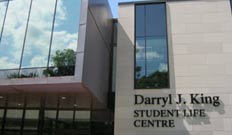
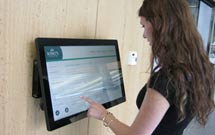
The Darryl J. King Student Life Centre, usually referred to as the "SLC," is certified LEED Silver. Leadership in Energy and Environmental Design (LEED) is an internationally recognized green building certification system. The SLC earned a Silver rating because of its many sustainable features and programs, from waste management during construction to features like a green roof and a rainwater cistern, along with an innovative green cleaning program. The building delivers water and energy efficiency, reduced urban heat island effect, accessibility to sustainable transportation, streamlined recycling, and improved indoor environmental quality.
To learn more about the sustainable features of the building, check out the LEED education kiosk located next to the auditorium.
Electric Vehicle (EV) Charging
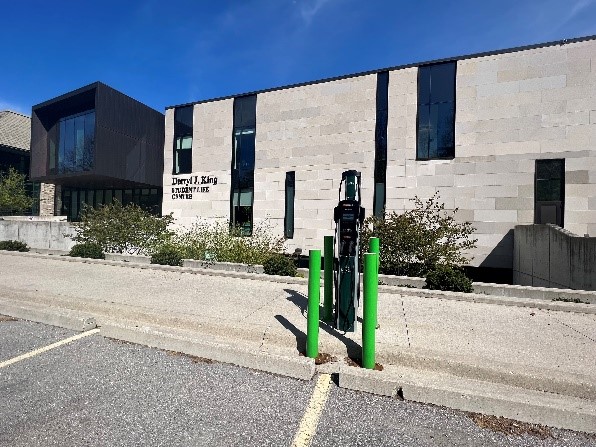
With the growing popularity of electric vehicles, King’s now offers electric vehicle (EV) chargers on campus! As part of our commitment to sustainability and reducing our carbon footprint, our first EV charging station has been installed at the Darryl J. King Student Life Centre’s parking lot. EV chargers provide a convenient and reliable way for electric vehicle owners to recharge their vehicles while on campus, encourage more people to adopt electric vehicles, reduce greenhouse gas emissions, enable longer trips, and reduce range anxiety. By offering EV chargers on campus, King’s is supporting the transition to clean transportation and demonstrating our commitment to a more sustainable future.
You'll find the EV chargers in Darryl J. King Student Life Centre Parking Lot 3.
King’s Solar
.jpg)
Since 2011, King's has produced some of its own electricity with two sets of solar panels on the roofs of Wemple Hall and Labatt Hall. Check out the King's SolarVu portal to see how much electricity (and cost savings) the solar panels are producing for the campus!
Chimney Swift Habitat Protection

Chimney swifts are a threatened species protected under both provincial and federal legislation. King’s is aiding the survival of this species by allowing them to roost in the Wemple chimney. During September 2013, 1604 swifts were found roosting in the chimney. This is the highest number of swifts tallied in a single building on a single night since monitoring began in 2003. The King’s community takes pride in providing a home for these birds.
Tree Planting
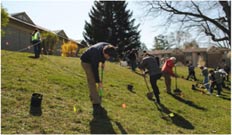
Planting trees is an important step towards mitigating the impacts of climate change and preserving our planet for future generations. With the help of the Green Team, ReForest London’s fund matching and assistance, and the efforts of all the volunteer planters, King’s has planted over 200 trees and shrubs on campus during two tree planting events.
Food Services
Aramark, which operates food services at King’s, is committed to environmental stewardship. Aramark's sustainability activities at King’s include sending spent fryer oil to be made into biodiesel, providing discounts for reusable mug use (10 cents off), composting kitchen food waste, sourcing food sustainably, green cleaning, and minimizing waste.
Physical Plant
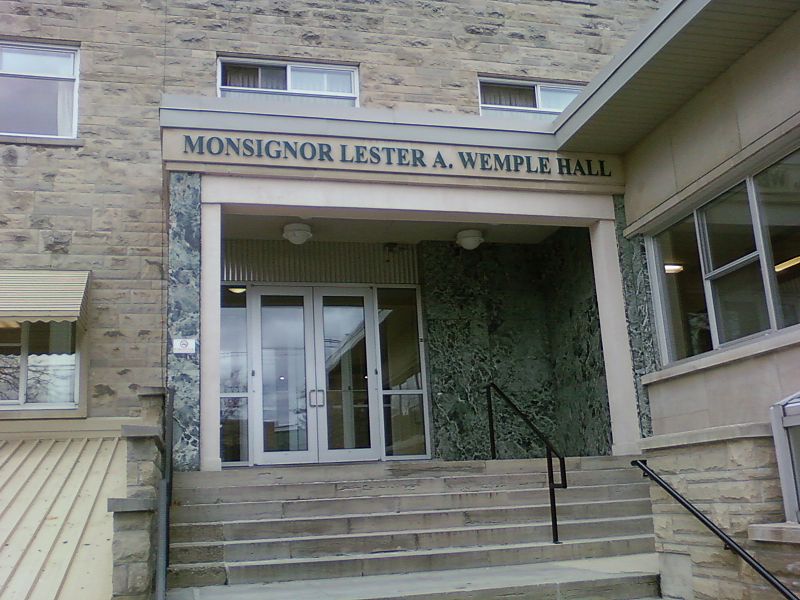
The Physical Plant staff make a positive impact at King’s every day through continual efforts to save energy, conserve resources, prioritize landfill diversion, and improve the campus environment. Staff members routinely turn off lights in unoccupied spaces, look for ways to improve efficiency, and carry out pivotal activities like waste management, maintenance, and groundskeeping. Many of the eco initiatives on campus are made possible by the work of Physical Plant.
Moving Forward
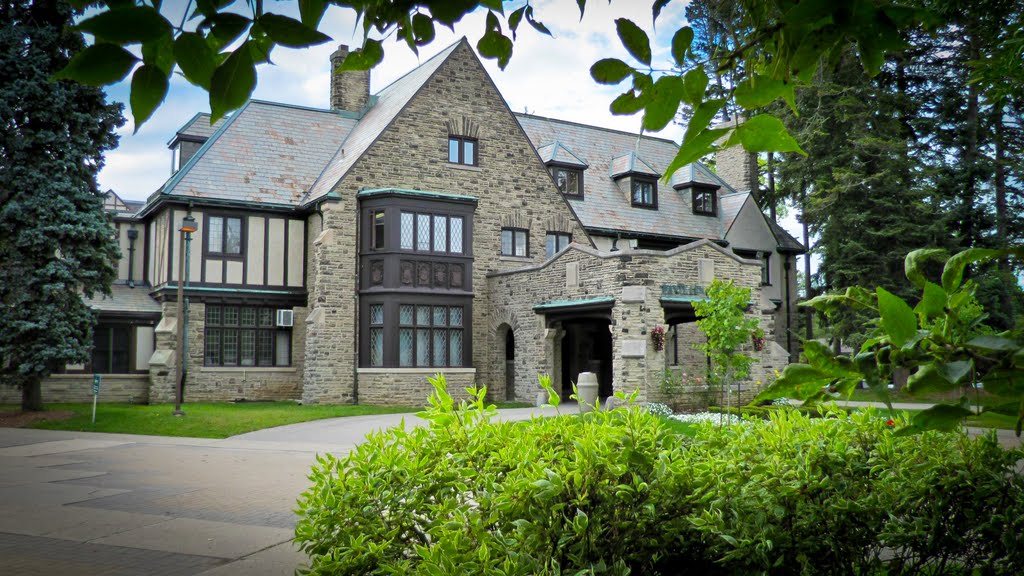
King’s is continually working to improve our environmental performance. The college has developed a plan to steer new projects and progress King’s vision of a sustainable campus. Green cleaning – cleaning using products and chemicals that pose less risk to the environment – is done throughout the campus. King's composts paper towels in public buildings on campus, and we have expanded our recycling program to include disposable masks and nitrile gloves. We also participate in the annual Thames River clean-up.
Use King's Green Map to find the locations of our sustainable buildings and facilities, as well as our recycling stations, composting bins, bicycle racks and EV charging stations.
